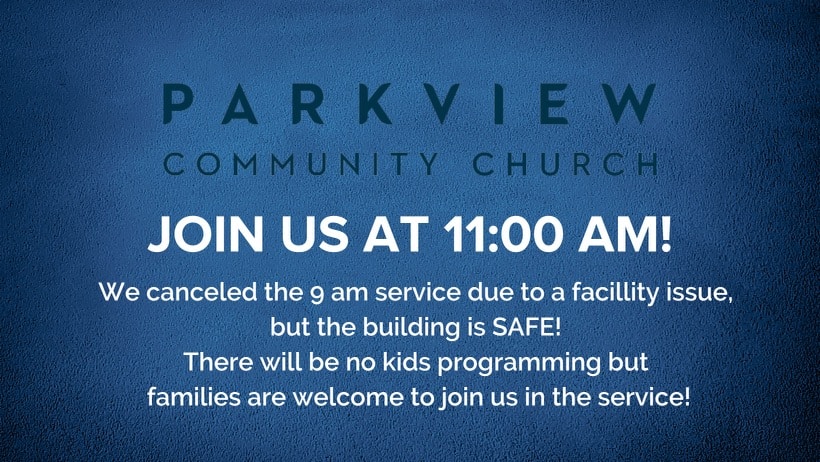Sabbath: Home Guide
Written by Michayla White, Executive Director of International Network of Children’s Ministry
What is Sabbath?
The biblical Sabbath creates a weekly cycle of encounters with rest (menuchah), holiness (kedushah), and joy (oneg). It is not just a day off from work. It is a 24-hour “sanctuary in time” where our souls can find spiritual rest and nourishment in the presence of God. On Sabbath, we set aside striving and the cares of daily life to focus on the Kingdom of Heaven. It is a day with the Lord where our chief occupation is to know the Lord. Some of the primary ways we can practice this occupation on the Sabbath is to worship, pray, read His Word, enjoy our loved ones, and practice our heavenly citizenship by reflecting His care for His creation.
Sabbath Blessings
In homes that practice the Sabbath, one of the traditional ways to differentiate it from the other days of the week is by welcoming/beginning their Sabbath with blessings. Just like we differentiate birthdays with cake and a song, or sports games with a national anthem, we can differentiate the Sabbath by blessing God, others, and the day itself.
Beginning at sundown on Friday evening (*you may need to determine a different day based on requirements of your schedule), families traditionally will gather around the table for a joyful, celebratory meal and begin their Sabbath with blessings.
On the table are two candles, delicious bread, and a cup of juice or wine.
Beginning: Bless the Lord
The eldest woman of the home lights the candles and welcomes the Sabbath by thanking God with this blessing:
- “Blessed are you, LORD our God, King of the Universe, who sanctifies us with His Word, and commands us to be a light to all people, and who gave to us Jesus our Messiah- the Light of the World.”
If there is a husband and wife in the household:
After the candles are lit and the woman has blessed the Lord, the husband then takes the opportunity to bless his wife. A traditional blessing used to bless one’s wife is Eshet Chayil, a portion taken from the concluding section of Proverbs 31. The Hebrew word eshet is the construct of the word for woman, and chayil connotes bravery. The husband reads this passage at the table over the wife, and in doing so blesses her as a woman of valor and strength. A beautiful way to personalize this blessing is to add his wife’s name into the verses as he reads the passage over her.
- Read: Proverbs 31:10-31
If there are children in the household:
After the candles are lit, and after the husband blesses his wife as an Eshet Chayil, it is time to bless the children. It is traditional for the priestly blessing from Numbers 6 to be spoken over the children at the table, but parents may also want to use this intimate moment to add their own words of blessing, appreciation, and love for their children.
- May the Lord bless you and keep you. May the Lord make His face shine upon you and be gracious to you. May the Lord lift up His countenance upon you and give you peace. (from Numbers 6:24-26).
- Example: May you, [CHILD’S NAME], know that you were created by our loving God on purpose, for a purpose. May His Words guide you, may His presence give you courage, and may His Spirit teach you the ways you are to go. May you take joy in Him and share your gifts with the world so that others might rejoice in Him, too. May this day be a blessing and draw you closer to Him.
Dedication: Blessing the Lord, Setting Apart the Sabbath
After the candles are lit, and the family has blessed one another, the final movement is to set apart the Sabbath and bless the Lord before beginning the meal. This is known as the Kiddush (sanctification) blessing. It’s typically said while holding up the cup of juice or wine. The blessing begins by reciting Genesis 1:31-2:3 and concludes with thanks to God for the gift of Sabbath.
- Genesis 1:31-2:3
- Conclusion:
- “Blessed are you, LORD our God, King of the Universe, creator of the fruit of the vine.” (Drink the cup, share around the table.)
- “Blessed are you, LORD our God, King of the Universe, who sanctifies us with His Word, and in His love gave us the Sabbath as a memorial work of His creation, the heritage of our freedom, and of His coming Kingdom. Blessed are you, LORD, who makes the Sabbath holy.”
- (Take the bread, break off a piece, and pass around the table for all to share.) “Blessed are you, LORD our God, King of the Universe, who gives us the Living Bread from Heaven and bread from the earth. Amen.”
After blessing the Lord, blessing those present, and setting apart the Sabbath, it is customary to begin the meal by expressing to one another at the table, “Shabbat shalom!” [Peaceful Sabbath!] This is a joyful and loving way to express your desire for each person to experience a peaceful and meaningful Sabbath.
Sabbath Suggestions
- Begin where you are, not where you should be. Just begin. If you can only Sabbath for a few hours to start with, a few hours is better than no hours. Build toward a full 24 hours to experience a richer Sabbath, but starting with a few hours is valuable and matters.
- Set the day apart from other days by welcoming it with the blessings above alongside a celebratory meal (if pizza feels celebratory, go for it! If steak on the grill and tons of watermelon feels like a party, go with that! Whatever makes it feel special). Beginning Sabbath in the evening and following through to the following evening is a wonderful cadence to follow. By welcoming it with the celebratory evening meal, your mind and body are able to “fall in” to Sabbath. Celebrate, eat, go to bed… it sets up the day time of your Sabbath the next day beautifully.
- The way you enjoy your Sabbath day can be put through the grid of rest (settling in, dwelling securely, and peacefully), worship (glorification, adoration, magnification of God), and joy (festive, delight). Instead of thinking about what you can’t do, ask ‘can’ questions.
- If you have kids, have a lot of grace for what rest, worship, and joy looks like for them. For children, rest is often play, worship is experiential and often adventurous, and joy will look like exuberant activity. This might not feel like rest to you, but that is ok. We can learn a lot from our children on the Sabbath- you’ll be surprised by the way they teach you about joy, rest, and worship. Teenagers might struggle to relinquish their phones, but encourage them to engage in the present. Young children might enjoy going on a leisurely walk in the neighborhood – don’t rush them, pause when they pause, and observe what they observe. Take the opportunity to point out what they see in creation back to the Creator.
- Your Sabbath will be richer if you refrain from shopping (accumulation), running errands, projects on the house, or seeking out entertainment. The Sabbath is not a “day off” – it is a holy and blessed day where our singular occupation is to know the Lord. It’s a day to practice contentment and relish your citizenship in the Kingdom of Heaven.
- Remember, this is a day of delight, not a burden to bear. Ceasing from work, achievement, and hurry is an act of resistance so you will feel the push back. That’s ok. Keep practicing. Keep considering:
- What can you do to set your mind on things above?
- What can you do to create an environment of worship, rest, and delight?
- What can you do to embrace your Father’s heart of healing and restoration?
–––––
About Michayla White
As the Executive Director for INCM, Michayla oversees the ministry of INCM and provides guidance for initiatives that inspire and equip the kidmin community. For the past eleven years, she has had the privilege of serving in children’s and family ministry. Prior to joining INCM, she served at a non-profit children’s ministry organization in various capacities like media production, digital strategy, conferences, partnerships, and ministry program design. She has also enjoyed consulting for ministry friends and organizations. Michayla has a Bachelor’s in Psychology with specializations in Christian Counseling and Life Coaching from Liberty University. Her passion for children’s ministry started in middle school, and she was always involved in all aspects of her church’s children’s ministry. These experiences solidified a burning passion in her heart to serve those who serve children and families.
Michayla married her best friend and childhood sweetheart. They are having a blast raising two little boys.


